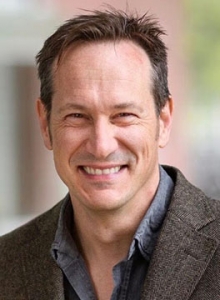
Peter Andolfatto
Columbia University
USA
EMBO Workshop
EMBL is committed to sharing research advances and sustaining scientific interaction throughout the coronavirus pandemic. We are delighted to announce that this conference is going virtual and invite you to join us online.
Registration has officially closed for this conference, but places are still available so it is worth enquiring, please contact Diah Yulianti. Abstract submissions for oral and poster presentations are, however, no longer possible.
Advances in genome sequencing and gene editing tools are providing unprecedented insights into biological mechanisms and evolutionary processes. In parallel, computational and theoretical approaches are providing new insights into our understanding of these new data. A goal for this conference is to unite people across theoretical and experimental backgrounds into a coherent focus on “predicting evolution”.
The conference will explore the evolution of biological systems at different levels: from genes and molecules to organism development and ecology. As such, we have invited leaders in their respective fields across various scales of evolution: molecular, network, microbial, developmental, and community. Particular emphasis for this conference will be placed on understanding evolution through mechanistic biology. We will explore recent advances in experimental and theoretical approaches to study how genetic and non-genetic changes drive and constrain evolution. The meeting will offer a training ground and productive learning experience for attendees, and provide networking opportunities for scientists across disciplines relevant to evolutionary biology. It should be of particular interest to those working at the interface of evolution, quantitative genetics, development, and systems biology.

Columbia University
USA

University of Bern
Switzerland
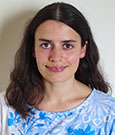
Swiss Federal Institute of Technology in Lausanne
Switzerland

EMBL Heidelberg
Germany
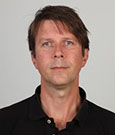
Wageningen University & Research
The Netherlands
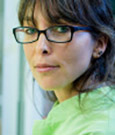
University of Groningen
The Netherlands
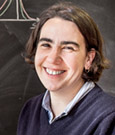
Gulbenkian Science Institute
Portugal
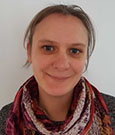
Delft University of Technology
The Netherlands

University of Cologne
Germany
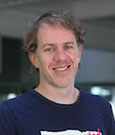
Centre for Genomic Regulation
Spain

Cold Spring Harbor Laboratory
USA
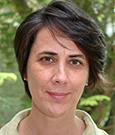
National University of Singapore and Yale-NUS-College
Singapore
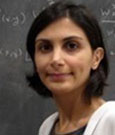
University of Washington
USA

ETH Zürich
Switzerland
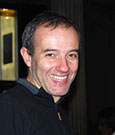
Stanford University
USA
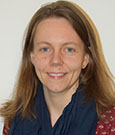
University of Lausanne
Switzerland

Howard Hughes Medical Institute
USA
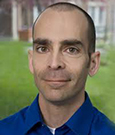
The University of Chicago
USA

Max Planck Institute for Plant Breeding Research
Germany
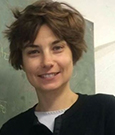
École Normale Supérieure
France
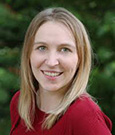
University of Michigan
USA

EMBL Heidelberg
Germany

ETH Zürich
Switzerland

École Normale Supérieure
France
Got something to say? Tweet it! #EMBOPredictEvo
All times in the programme below are shown as the time in Europe (Berlin, Amsterdam, Paris).
To find out the equivalent time zone in your location, enter Berlin, the programme date and time along with your city into the Time Zone Converter.
| Time (Europe/Berlin) | Speaker |
|---|---|
| 13:00 – 13:10 | Opening remarks AVAILABLE ON DEMAND AFTER LIVE STREAM |
| 13:10 – 16:55 | Session 1 – Predicting the evolution of molecules Chairs: Aleksandra Walczak and Justin Crocker |
| 13:10 – 13:30 | Sequence to energy and structure Ben Lehner – Centre for Genomic Regulation, Spain AVAILABLE ON DEMAND AFTER LIVE STREAM |
| 13:30 – 13:35 | Transition (setup and switch to the next live talk) |
| 13:35 – 13:45 | Evolution of a new protein-protein interaction following gene duplication Isabel Nocedal – Massachusetts Institute of Technology, USA AVAILABLE ON DEMAND AFTER LIVE STREAM |
| 13:45 – 13:50 | Transition (setup and switch to the next live talk) |
| 13:50 – 14:10 | Impact of population spatial structure on mutant fixation probabilities, from models on graphs to the gut Anne-Florence Bitbol – Swiss Federal Institute of Technology in Lausanne, Switzerland AVAILABLE ON DEMAND AFTER LIVE STREAM |
| 14:10 – 14:15 | Transition |
| 14:15 – 14:30 | Break |
| 14:30 – 14:50 | How can we predict the effects of mutations? David McCandlish – Cold Spring Harbor Laboratory, USA AVAILABLE ON DEMAND AFTER LIVE STREAM |
| 14:50 – 14:55 | Transition (setup and switch to the next live talk) |
| 14:55 – 15:05 | Gene duplication provides mutational robustness and accelerates evolution Ljiljana Mihajlovic – University of Lausanne, Switzerland AVAILABLE ON DEMAND AFTER LIVE STREAM |
| 15:05 – 15:10 | Transition (setup and switch to the next live talk) |
| 15:10 – 15:30 | Temporal dynamics of epistasis, contingency, and historical memory along an ancient evolutionary trajectory Joe Thornton – The University of Chicago, USA AVAILABLE ON DEMAND AFTER LIVE STREAM |
| 15:30 – 15:35 | Transition |
| 15:35 – 15:50 | Break |
| 15:50 – 16:20 | Panel discussion 1 Chairs: Aleksandra Walczak and Justin Crocker Panelists: Ben Lehner – Centre for Genomic Regulation, Spain Isabel Nocedal – Massachusetts Institute of Technology, USA Anne-Florence Bitbol – Swiss Federal Institute of Technology in Lausanne, Switzerland David McCandlish – Cold Spring Harbor Laboratory, USA Ljiljana Mihajlovic – University of Lausanne, Switzerland Joe Thornton – The University of Chicago, USA |
| 16:20 – 16:25 | Transition for speakers to Zoom breakout rooms |
| 16:25 – 16:55 | Meet the speakers session 1 with: Ben Lehner, Anne-Florence Bitbol, David McCandlish, Joe Thornton and short talk presenters – Isabel Nocedal and Ljiljana Mihajlovic |
| 16:55 – 17:55 | Break and digital poster session 1 (live chats and video calls with poster presenters with last names A-J) |
| 17:55 – 21:40 | Session 2 – Predicting regulatory network evolution Chairs: Joshua Payne and Patricia Wittkopp |
| 17:55 – 18:15 | Robustness and innovation in genotype networks of synthetic circuits Yolanda Schaerli – University of Lausanne, Switzerland AVAILABLE ON DEMAND AFTER LIVE STREAM |
| 18:15 – 18:20 | Transition (setup and switch to the next live talk) |
| 18:20 – 18:30 | The combination of cis- and trans-regulatory architecture is the key driver for variation in parallel selection responses during polygenic adaptation Dagný Ásta Rúnarsdóttir – University of Veterinary Medicine Vienna, Austria |
| 18:30 – 18:35 | Transition (setup and switch to the next live talk) |
| 18:35 – 18:55 | Predictability in the genetic basis for diversification of leaf form Miltos Tsiantis – Max Planck Institute for Plant Breeding Research, Germany |
| 18:55 – 19:00 | Transition |
| 19:00 – 19:15 | Break |
| 19:15 – 19:35 | Constraints of regulatory evolution in flies Justin Crocker – EMBL Heidelberg, Germany AVAILABLE ON DEMAND AFTER LIVE STREAM |
| 19:35 – 19:40 | Transition (setup and switch to the next live talk) |
| 19:40 – 19:50 | Testing the variability optimum of the cell-cycle dynamics using directed evolution and optogenetics Vojislav Gligorovski – Swiss Federal Institute of Technology Lausanne, Switzerland |
| 19:50 – 19:55 | Transition (setup and switch to the next live talk) |
| 19:55 – 20:15 | Mutation bias shapes the spectrum of adaptive substitutions Joshua Payne – ETH Zürich, Switzerland AVAILABLE ON DEMAND AFTER LIVE STREAM |
| 20:15 – 20:20 | Transition |
| 20:20 – 20:35 | Break |
| 20:35 – 21:05 | Panel discussion 2 Chairs: Joshua Payne and Patricia Wittkopp Panelists: Yolanda Schaerli – University of Lausanne, Switzerland Dagný Ásta Rúnarsdóttir – University of Veterinary Medicine Vienna, Austria Miltos Tsiantis – Max Planck Institute for Plant Breeding Research, Germany Justin Crocker – EMBL Heidelberg, Germany Vojislav Gligorovski – Swiss Federal Institute of Technology Lausanne, Switzerland Joshua Payne – ETH Zürich, Switzerland |
| 21:05 – 21:10 | Transition for speakers to Zoom breakout rooms |
| 21:10 – 21:40 | Meet the speakers session 2 with: Yolanda Schaerli, Miltos Tsiantis, Justin Crocker, Joshua Payne and short talk presenters – Dagný Ásta Rúnarsdóttir and Vojislav Gligorovski |
| 21:40 – 21:50 | Break |
| 21:50 – 22:30 | Social programme: speed networking |
| 22:30 | End of day 1 – Continued access to digital posters, networking and discussion platforms |
| Time (Europe/Berlin) | Speaker |
|---|---|
| 13:00 – 16:45 | Session 3 – Predicting microbial evolution Chairs: Justin Crocker and Aleksandra Walczak |
| 13:00 – 13:20 | Better predictions of microbial and viral evolution? Michael Lässig – University of Cologne, Germany AVAILABLE ON DEMAND AFTER LIVE STREAM |
| 13:20 – 13:25 | Transition (setup and switch to the next live talk) |
| 13:25 – 13:35 | Mutational hotspots that determine highly predictable evolution can be built and broken by silent genetic changes James Horton – University of Bath, UK AVAILABLE ON DEMAND AFTER LIVE STREAM |
| 13:35 – 13:40 | Transition (setup and switch to the next live talk) |
| 13:40 – 14:00 | Response in immune repertoires Aleksandra Walczak – École Normale Supérieure, France AVAILABLE ON DEMAND AFTER LIVE STREAM |
| 14:00 – 14:05 | Transition |
| 14:05 – 14:20 | Break |
| 14:20 – 14:40 | Clonal interference, mutation bias and the predictability of antibiotic resistance evolution Arjan de Visser – Wageningen University & Research, The Netherlands AVAILABLE ON DEMAND AFTER LIVE STREAM |
| 14:40 – 14:45 | Transition (setup and switch to the next live talk) |
| 14:45 – 14:55 | Pararesistance: A non-genetic mechanism of stress adaptation that drives rapid evolution of drug resistance Lucy Xie – Stanford University, USA |
| 14:55 – 15:00 | Transition (setup and switch to the next live talk) |
| 15:00 – 15:20 | Contrasting properties of cis- and trans-regulatory mutations in S. cerevisiae Patricia Wittkopp – University of Michigan, USA AVAILABLE ON DEMAND AFTER LIVE STREAM |
| 15:20 – 15:25 | Transition |
| 15:25 – 15:40 | Break |
| 15:40 – 16:10 | Panel discussion 3 Chairs: Justin Crocker and Aleksandra Walczak Panelists: Michael Lässig – University of Cologne, Germany James Horton – University of Bath, UK Aleksandra Walczak – École Normale Supérieure, France Arjan de Visser – Wageningen University & Research, The Netherlands Lucy Xie – Stanford University, USA Patricia Wittkopp – University of Michigan, USA |
| 16:10 – 16:15 | Transition for speakers to Zoom breakout rooms |
| 16:15 – 16:45 | Meet the speakers session 3 with: Michael Lässig, Aleksandra Walczak, Arjan de Visser, Patricia Wittkopp and short talk presenters – James Horton and Lucy Xie |
| 16:45 – 17:45 | Break and digital poster session 2 (live chats and video calls with poster presenters with last names K-P) |
| 17:45 – 21:30 | Session 4 – Prediction population evolution Chairs: Patricia Wittkopp and Joshua Payne |
| 17:45 – 18:05 | Bottom-up reconstruction of the yeast polarity genotype-phenotype map makes evolutionary relevant predictions Liedewij Laan – Delft University of Technology, The Netherlands AVAILABLE ON DEMAND AFTER LIVE STREAM |
| 18:05 – 18:10 | Transition (setup and switch to the next live talk) |
| 18:10 – 18:20 | Accumulation and maintenance of information by selection Michal Hledík – Institute of Science and Technology Austria, Austria AVAILABLE ON DEMAND AFTER LIVE STREAM |
| 18:20 – 18:25 | Transition (setup and switch to the next live talk) |
| 18:25 – 18:45 | Latent phenotypic diversity of local adaptive evolution Dmitri Petrov – Standford University, USA AVAILABLE ON DEMAND AFTER LIVE STREAM |
| 18:45 – 18:50 | Transition |
| 18:50 – 19:05 | Break |
| 19:05 – 19:25 | Control comes after prediction: Evolutionary control for HIV therapy Armita Nourmohammad – University of Washington, USA AVAILABLE ON DEMAND AFTER LIVE STREAM |
| 19:25 – 19:30 | Transition (setup and switch to the next live talk) |
| 19:30 – 19:40 | Parallel reduction in flowering time enabled evolutionary rescue and establishment in a colonizing Arabidopsis lineage Célia Neto – Max Planck Institute for Plant Breeding Research, Germany AVAILABLE ON DEMAND AFTER LIVE STREAM |
| 19:40 – 19:45 | Transition (setup and switch to the next live talk) |
| 19:45 – 20:05 | (How) Will a virus population adapt to mutagenic drug treatment? Claudia Bank – University of Bern, Switzerland AVAILABLE ON DEMAND AFTER LIVE STREAM |
| 20:05 – 20:10 | Transition |
| 20:10 – 20:25 | Break |
| 20:25 – 20:55 | Panel discussion 4 Chairs: Patricia Wittkopp and Joshua Payne Panelists: Liedewij Laan – Delft University of Technology, The Netherlands Michal Hledík – Institute of Science and Technology Austria, Austria Dmitri Petrov – Standford University, USA Armita Nourmohammad – University of Washington, USA Célia Neto – Max Planck Institute for Plant Breeding Research, Germany Claudia Bank – University of Bern, Switzerland |
| 20:55 – 21:00 | Transition for speakers to Zoom breakout rooms |
| 21:00 – 21:30 | Meet the speakers session 4 with: Liedewij Laan, Dmitri Petrov, Armita Nourmohammad, Claudia Bank and short talk presenters – Michal Hledík and Célia Neto |
| 21:30 – 21:40 | Break |
| 21:40 – 22:10 | Living room concert with Lazy Fur |
| 22:10 – 22:40 | Social programme: bar mixer |
| 22:40 | End of day 2 – Continued access to digital posters, networking and discussion platforms |
| Time (Europe/Berlin) | Speaker |
|---|---|
| 13:00 – 16:05 | Session 5 – Predicting community evolution (part 1) Chairs: Aleksandra Walczak and Joshua Payne |
| 13:00 – 13:20 | Is the evolution of modular cis-regulatory elements linked to the appearance of “hot-spot” loci? Antónia Monteiro – National University of Singapore and Yale-NUS-College, Singapore AVAILABLE ON DEMAND AFTER LIVE STREAM |
| 13:20 – 13:25 | Transition (setup and switch to the next live talk) |
| 13:25 – 13:35 | The mechanisms of global epistasis in metabolism Djordje Bajic – Yale University, USA |
| 13:35 – 13:40 | Transition (setup and switch to the next live talk) |
| 13:40 – 13:50 | Exploration of tRNA fitness landscape reveals that the wild type allele is sub-optimal and mutationally robust Tamar Friedlander – Hebrew University of Jerusalem, Israel AVAILABLE ON DEMAND AFTER LIVE STREAM |
| 13:50 – 13:55 | Transition |
| 13:55 – 14:10 | Break |
| 14:10 – 14:20 | Predictability of bacterial adaptation at high resolution under antibiotic stress Michael Manhart – ETH Zürich, Switzerland AVAILABLE ON DEMAND AFTER LIVE STREAM |
| 14:20 – 14:25 | Transition (setup and switch to the next live talk) |
| 14:25 – 14:35 | Experimental evolution of bicoid gene regulatory network in Drosophila Xueying Li – EMBL Heidelberg, Germany AVAILABLE ON DEMAND AFTER LIVE STREAM |
| 14:35 – 14:40 | Transition |
| 14:40 – 14:55 | Break |
| 14:55 – 15:25 | Panel discussion 5 (part 1) Chairs: Aleksandra Walczak and Joshua Payne Panelists: Antónia Monteiro – National University of Singapore and Yale-NUS-College, Singapore Djordje Bajic – Yale University, USA Tamar Friedlander – Hebrew University of Jerusalem, Israel Michael Manhart – ETH Zürich, Switzerland Xueying Li – EMBL Heidelberg, Germany |
| 15:25 – 15:30 | Transition for speakers to Zoom breakout rooms |
| 15:30 – 16:00 | Meet the speakers session 5 (part 1) with: Antónia Monteiro and short talk presenters – Djordje Bajic, Tamar Friedlande, Michael Manhart and Xueying Li |
| 16:00 – 16:05 | Transition |
| 16:05 – 17:05 | Break and digital poster session 3 (live chats and video calls with poster presenters with last names Q-Z) |
| 17:05 – 20:55 | Session 5 – Predicting community evolution (part 2) Chairs: Justin Crocker and Patricia Wittkopp |
| 17:05 – 17:25 | Two modes of evolution shape diversity of a common gut commensal Isabel Gordo – Gulbenkian Science Institute, Portugal AVAILABLE ON DEMAND AFTER LIVE STREAM |
| 17:25 – 17:30 | Transition (setup and switch to the next live talk) |
| 17:30 – 17:40 | Contingency and chance erase necessity in the experimental evolution of ancestral proteins Brian Metzger – University of Chicago, USA AVAILABLE ON DEMAND AFTER LIVE STREAM |
| 17:40 – 17:45 | Transition (setup and switch to the next live talk) |
| 17:45 – 18:05 | A novel family of secreted insect proteins linked to plant gall development David Stern – Howard Hughes Medical Institute, USA AVAILABLE ON DEMAND AFTER LIVE STREAM |
| 18:05 – 18:10 | Transition |
| 18:10 – 18:25 | Break |
| 18:25 – 18:45 | The role of microbe-microbe interactions on the evolution of antibiotic resistance Marjon de Vos – University of Groningen, The Netherlands |
| 18:45 – 18:50 | Transition (setup and switch to the next live talk) |
| 18:50 – 19:00 | The addition of a mutualist biases natural selection towards adaptations which enhance community yield Sandeep Venkataram – University of California, San Diego, USA AVAILABLE ON DEMAND AFTER LIVE STREAM |
| 19:00 – 19:05 | Transition (setup and switch to the next live talk) |
| 19:05 – 19:25 | Predicting the evolution of Na+,K+-ATPase toxin-resistance in animals Peter Andolfatto – Columbia University, USA AVAILABLE ON DEMAND AFTER LIVE STREAM |
| 19:25 – 19:30 | Transition |
| 19:30 – 19:40 | Closing remarks AVAILABLE ON DEMAND AFTER LIVE STREAM |
| 19:40 – 19:55 | Break |
| 19:55 – 20:25 | Panel discussion 5 (part 2) Chairs: Justin Crocker and Patricia Wittkopp Panelists: Isabel Gordo – Gulbenkian Science Institute, Portugal Brian Metzger – University of Chicago, USA David Stern – Howard Hughes Medical Institute, USA Marjon de Vos – University of Groningen, The Netherlands Sandeep Venkataram – University of California, San Diego, USA Peter Andolfatto – Columbia University, USA |
| 20:25 – 20:30 | Transition for speakers to Zoom breakout rooms |
| 20:30 – 21:00 | Meet the speakers session 5 (part 2) with: Isabel Gordo, David Stern, Marjon de Vos, Peter Andolfatto and short talk presenters – Brian Metzger and Sandeep Venkataram |
| 21:00 | End of conference – Continued access to digital posters, networking and discussion platforms for 2 weeks after the conference |
Registration Fees (include access to all of the talks, online group discussions, and help us cover our costs to run the event):
| Academia | 190 Euro |
| PhD Student | 140 Euro |
| Industry | 240 Euro |
| EMBL Staff | Intranet access |
Accredited journalists may be eligible to register for a reduced press rate or in some cases for complimentary registration. Registrants may be required to provide accreditation or equivalent proof of press membership after registration. Please contact Lisa Trinh for more information.
Registration will be on a first-come first-served basis. Your place can only be confirmed after payment of the registration fee.
Types of payments accepted are international bank transfers (only up to 8 weeks before event) and credit card payments.
Only registered participants are eligible to submit an abstract. We only accept online abstract submissions.
After registration you can submit your abstract via a separate link that will be provided in the email confirmation. Alternatively, you can access the link on the confirmation page directly after registering. The same login credentials are used for both processes.
Please note:
Title: The title should not exceed 20 words. Only the first word of the title should start with a capital letter and the rest of the title should be in lowercase.
Authors and Affiliations: Please fill in the author’s details as requested in the online form. The compulsory details are: First Name, Last Name, Organisation Name (Affiliation or Company), Country and Email. Mark only one author as the role of First author and please don’t forget to indicate who will be presenting. The order of the authors will be listed as follows: First Author, Co-First Author (alphabetically if multiple), co-author(s) (in the order added by the submitter).
Presentation Types: When submitting your abstract, you can apply for an oral or poster presentation. A selection process will take place with the results announced 2-3 weeks after the abstract submission deadline.
Please check our FAQs pages for further information on how to submit an abstract.
All academic and student registrants are invited to apply for a registration fee waiver, provided by the EMBL Advanced Training Centre Corporate Partnership Programme and EMBO. The registration fee waiver covers the registration sum that you have paid to attend the meeting. Conference participants are not required to pre-pay the registration fee to be selected for a fee waiver for a virtual meeting. If you have already paid the registration fee and are awarded a fee waiver, it will be reimbursed after the meeting. Course participants are required to pay the course fee in advance, which will then be reimbursed after the recipient has attended the course.
For participants and speakers with childcare responsibilities there is the possibility to apply for a grant, provided by the EMBL Advanced Training Centre Corporate Partnership Programme and EMBO, to offset childcare costs incurred when participating at a virtual event. Eligible costs include fees for a babysitter or childcare facility or travel costs for a care giver. Please note that priority will be given to early stage researchers. Costs will be reimbursed after the meeting only once a reimbursement form and original receipts have been received. Attendance at the event is required in order to be eligible to receive the reimbursement. In order to apply for this grant, you must be registered by the abstract submission deadline.
Applies to selected courses only. Availability will be indicated during the abstract or motivation letter submission process.
This grant covers costs related to your attendance to the course (registration, travel and accommodation costs). The grant is restricted to PhD students and postdocs who conduct basic biomedical research.
Whether you are eligible to apply for a travel grant, depends on when you received your university entrance qualification (e.g. Abitur, A-Levels, High School Diploma, Final State Examination):
– for PhD and MD students, as well as graduates, the university entrance qualification must not have been obtained more than 11 years ago at the time of the envisaged course
– for postdocs, the university entrance qualification must not have been obtained more than 13 years ago at the time of the envisaged course
Applications for financial assistance can be submitted via the submission portal* (for the submission of abstracts for conferences or the submission of motivation letters for courses) by completing the Financial Assistance Application Section (underneath the section for entering abstract/motivation letter information). The link to the portal can be found in the registration confirmation email that you will receive after registering for the conference or course.
For conferences, if you are not submitting an abstract, you can still apply for financial assistance in the submission portal by following the instructions here. Note that priority will be given to those submitting an abstract to present at the conference. In your application you will be asked to answer questions regarding your motivation for applying, and, for registration fee waivers, the reasons why your lab cannot fund your attendance and how your attendance will make a difference to your career. Application for financial support will not affect the outcome of your registration application.
*For some events, applications for Childcare Grants will still be done by email. Information about the grant will be sent out shortly after the abstract/motivation letter deadline. Please contact the event Conference Officer if you have any questions.
The scientific organisers will select the recipients of registration fee waivers during the abstract selection process for conferences and the participant selection process for courses. Results will be announced approximately 3 – 4 weeks before the event start date. Selection results do not impact your admission to the meeting. Registration fee waiver selection is based on your current work or study location, your motivation for applying, the reasons for needing financial support and the impact this event will have on your career. Childcare grants are allocated based on career stage, with priority given to early stage researchers.
A list of external funding opportunities can be found here, and information on attending a conference as an event reporter here.
For further information about financial assistance please refer to the FAQ page.
Please do:
Please don’t:
Additional information can be found in our Code of Conduct.
It is important to stay healthy and move around, especially when you are attending an event virtually. We have put together a few coffee break stretches and yoga videos. You can find these under ‘resources’ on the conference platform.
Please use the Q&A function. It is possible to send a direct message to participants, poster presenters, and speakers within the conference platform.
If you have any other questions, you can go to the Help Desk on the conference platform. Click on ‘more’ on the top menu and click Help Desk.
The programme is planned based on Central European Time (CET) or Central European Summer Time (CEST) unless otherwise stated. As many virtual participants are attending from around the world, we do our best to accommodate as many timezones as possible when creating the programme. Please take your time zone into consideration when planning your attendance. Remember to set your time zone in your account.
We are using a virtual event platform for this conference. More information about the platform will be shared ahead of the conference.
Event Supporter:

Sponsorship Opportunities
We offer a variety of event sponsoring possibilities, with the flexibility to select a set sponsorship package or combine individual sponsorship options to suit your event budget. Discounts are available for companies sponsoring multiple events at EMBL Heidelberg. View other conferences, or contact sponsorship@embl.de for further information.
If you are interested in becoming a media partner of this event, please visit our media partnerships webpage.
EMBL wishes to warn sponsors of EMBL conferences and courses of fraudulent schemes purporting to offer sponsorship opportunities on behalf of EMBL or affiliated with EMBL officials. One current scam campaign of which we are aware is conducted using the name ‘Judy Eastman’ (judy@gopcontact.a2hosted.com) and entails approaches to sponsors offering sponsorship opportunities on EMBL’s behalf. Please be kindly advised that all relevant communication regarding sponsorship of EMBL conferences, symposia and courses is handled by EMBL directly and is sent from an official EMBL account. EMBL does not work with any external providers on sponsorship acquisition.
Please also note that:
Suspicious communications purportedly from, for or on behalf of EMBL should be reported to EMBL at the following email address sponsoring@embl.de.
Date: 14 - 16 Jun 2021
Location: Virtual
Deadline(s):
Abstract submission: Closed
Registration: Closed
Organisers:
Contact: Lisa Trinh